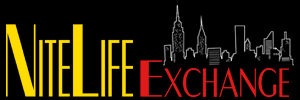
Bistro and MAC Hanson Award winning vocalist, Lucille Carr-Kaffashan, returns to Don’t Tell Mama this month with a new cabaret show, How The Light Gets In. This show features the work of male singer-songwriters who use their art to give voice to the feelings and experiences that men are typically discouraged from expressing in our society.They include artists such as Billy Joel, John Legend, Bruce Springsteen, Leonard Cohen, Darius Rucker and others.
NiteLife Exchange (NLE) celebrates Lucille Carr-Kaffashan (LCK) with Six Questions
NLE: When did you realize you had the gift of singing and what were your early influences?
LCK: I think the “gift” was being raised in a household that was always filled with music. My parents listened to all kinds of music, from opera to big band to Broadway to pop. I remember that my father was so fond of Louis Prima/Keely Smith and big band music. My mother swooned over Frank Sinatra in her day, but bopped around the house to top 40 hits when I was growing up. We had one of the first “hi-fi” sets in our house, a monstrous piece of furniture that still works, believe it or not.
As for me, my first formal singing was in choirs and glee clubs throughout grammar and high school years. My first influences were folk singers, The Beatles and the fabulous female singer-songwriters who came to prominence in the late 1960s and early 70s—Carole King, Judy Collins and especially Joni Mitchell. Singing along with their recordings were my early voice lessons.
NLE: How did you eventually get involved in Cabaret?
LCK: In the early 1980s my husband decided to buy a piano and start taking lessons. I started lessons as well, but it was so hard at that point in my life to find time to practice. Our teacher was a delightful woman whose own career had been in opera. She had many voice students as well, so at one point I switched from piano to voice, both because singing was my first love, but also because I could practice in the car (a lot of commuting for work in those days)! Twice a year she would have “cabaret nights,” essentially recitals for all her voice students. Some of her young adult students at the time were aiming at careers in music, so they started doing open mics and cabaret shows in NYC. I just followed suit, put one foot in front of the other, and got the cabaret bug. I started taking as many workshops as I could and began working with an accompanist. I’ll never forget my first show at Don’t Tell Mama in 1999. From that point on, I was hooked.
NLE: Since your Don’t Tell Mama debut in 1999, you have presented eleven different one-woman shows at clubs in New York City, New Jersey and Pennsylvania. What are the ways you go about sourcing material for your shows?
LCK: That process has evolved over the years. Early on, I worked with my music director to select songs we both loved and watched for the themes or through-lines that emerged in each show. My Finding Home show was the first one that began with an actual theme—all the various meanings of “home.” Since then I’ve found my musical “home” to be the work of singer-songwriters, first a Beatles tribute, then two shows about women singer-songwriters (women of the 1970s, and 21st century songwriters). My current show features the work of male singer-songwriters.
NLE: How have cabaret audiences changed during your career as a NYC entertainer?
LCK: I think cabaret audiences now have broader musical tastes and interests than in the past—embracing shows that feature contemporary music in genres other than the traditional, and fabulous, Great American Songbook. I’ve loved the work that I’ve done with musical theater songs and songs of the 1930s, 40s and 50s, but in the last few years I’ve specialized in folk/pop/country singer-songwriter tunes.
NLE: Which is your all time favorite performance/show?
LCK: Whatever I’m working on in the moment is always my favorite. Besides that, I’d say that my favorite performances have been those in settings where hardly anyone in the audience knew me at the beginning of the show. It is so rewarding to connect with people and discover that they really appreciate your work.
NLE: When you’re alone, what do you listen to?
LCK: I love to scour YouTube for contemporary singer-songwriter material. Sara Bareilles is a particular favorite. And my current show about male singer-songwriters heavily features the great Billy Joel, along with younger artists such as Darius Rucker and John Ondrasik (“Five For Fighting”).
Performances of How The Light Gets In are scheduled at Don’t Tell Mama on Saturday, April 27 at 7 pm and on Thursday, May 2 at 7 pm. The singer will be joined by her award-winning band members, music director Jeff Cubeta on piano and back-up vocals, Sean Harkness on guitar and Matt Scharfglass on bass. Direction is by David Hilder.
For more information and tickets click here









Leave a Reply